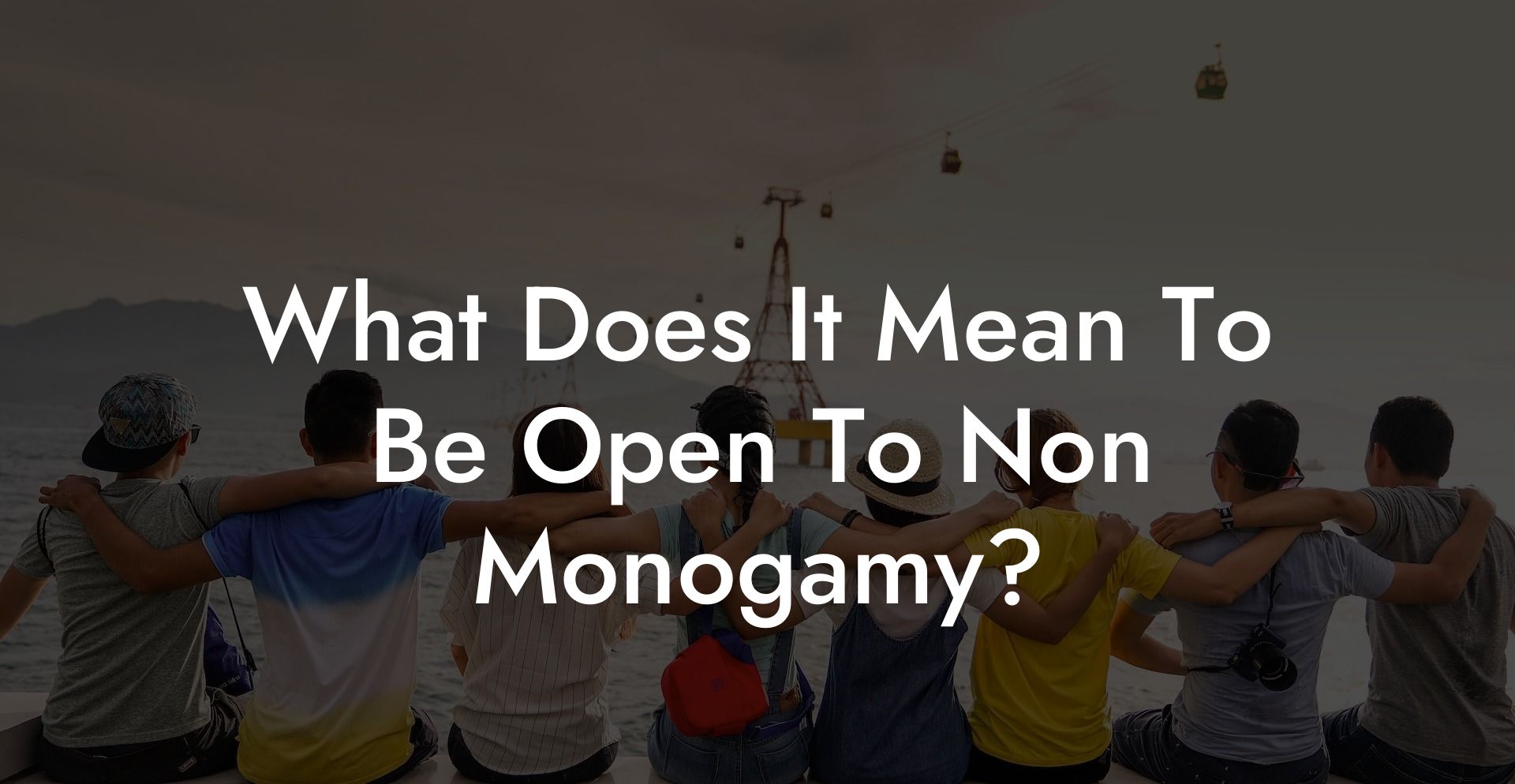The realm of romantic relationships is evolving, as people no longer see monogamy as the only viable option. A growing number of individuals and couples are exploring the idea of non-monogamy - a form of relationship that involves more than two partners concurrently in a consensual, ethical, and transparent manner. If you've ever wondered what it means to be open to non-monogamy and how to navigate this alternative relationship style, you've come to the right place. In this guide, we'll delve into the different forms of non-monogamy, their benefits and challenges, and how to ensure a successful non-monogamous relationship.
What Does It Mean To Be Open To Non Monogamy Table of Contents
Forms of Non-Monogamy
There are various forms of non-monogamous relationships, each with its unique dynamics:
Open Relationships
In an open relationship, both partners agree to engage in sexual and/or emotional connections with others outside the primary relationship. They may set specific boundaries and rules to avoid jealousy or misunderstandings.
Swinging
Swinging involves committed couples swapping partners or engaging in group sexual experiences, usually in the context of social events or clubs. Emotional connections with outsiders are generally discouraged.
Polyamory
Polyamory is the practice of maintaining multiple loving and committed relationships at once, with the consent and knowledge of all the partners involved. It may involve various relationship structures, such as hierarchies, where a primary partner is prioritized over secondary or tertiary partners, or egalitarian, where all partners have equal importance.
Relationship Anarchy
This form of non-monogamy does away with labels and hierarchies altogether, and instead, focuses on forming relationships based on mutual needs and desires. Partners can engage in connections that they deem meaningful and valuable without following societal norms or restrictions.
Benefits of Non-Monogamy
Embracing non-monogamous relationships can lead to several advantages:
Personal Growth
Engaging in non-monogamy often involves introspection and self-discovery, providing an opportunity to grow and evolve as a person.
Diverse emotional and sexual experiences
Non-monogamy allows individuals to explore their emotional and sexual needs more openly, contributing to a more satisfying and fulfilling life.
Honest communication
To ensure a successful non-monogamous relationship, individuals must engage in open, transparent conversations with their partners regarding boundaries, desires, and emotions.
Challenges of Non-Monogamy
Just like any relationship style, non-monogamy has its unique challenges:
Societal pressure
People in non-monogamous relationships may face scrutiny, judgment, and stigma from others as this relationship style defies traditional societal norms.
Time management
Juggling multiple relationships can become complicated and may require a careful allocation of time, energy, and emotional resources.
Jealousy and insecurities
Navigating through emotions like jealousy, envy, and insecurity can be challenging for individuals in non-monogamous relationships.
What Does It Mean To Be Open To Non Monogamy
Meet Kevin and Amy, a couple in their early 30s who have been in a committed relationship for five years. Both have a strong emotional bond but have realized that their sexual desires extend beyond their monogamous commitment. After a series of honest conversations, they decided to open their relationship by engaging in consensual encounters with other partners. They developed clear boundaries and guidelines for their new relationship dynamic, such as always using protection and communicating openly about their experiences with each other.
Being open to non-monogamy can be a rewarding and enlightening journey, as it challenges conventional beliefs about love, trust, and commitment. If this topic piques your interest or resonates with you, consider exploring more articles on our blog, The Monogamy Experiment. Whether non-monogamy is a passing curiosity or a desire to explore, the world of romantic possibilities extends far beyond traditional monogamy. Share this post with friends and expand the conversation about alternative relationship styles that cater to people's diverse needs, desires, and values.













